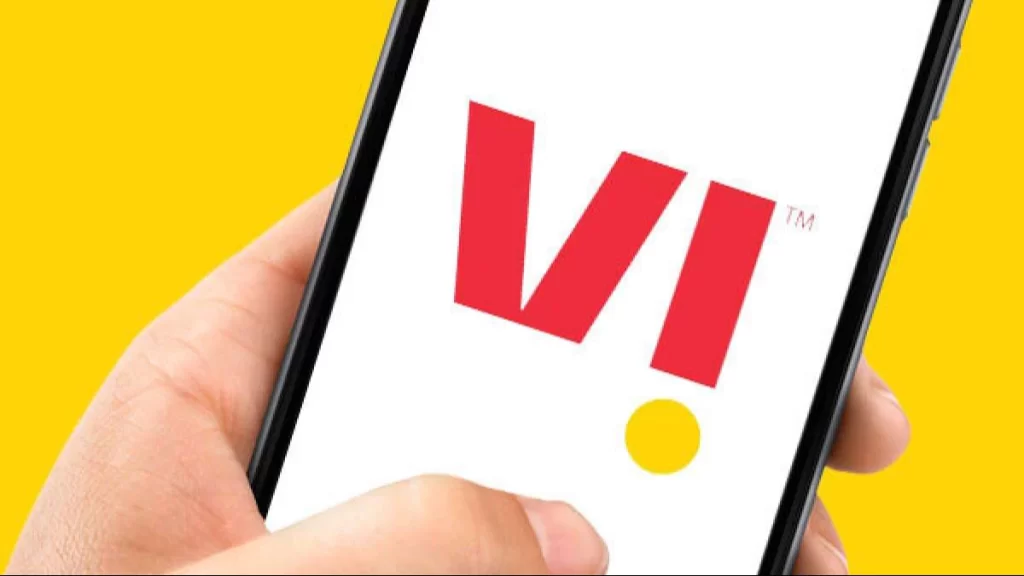Vodafone Idea Ltd. (Vi), one of India’s prominent communications providers, has been at the center of much attention and speculation in the Indian stock market. Formed through the merger of Vodafone India and Idea Cellular in 2018, the company was created to compete with the dominant market players: Reliance Jio and Bharti Airtel. Despite the merger, the company has faced numerous challenges that have influenced its stock price and market position. This article research’s deep into the current market trends, financial performance, and the major factors affecting Vodafone Idea shares, offering investors an inclusive understanding of the company’s standing in the telecom industry.

Overview of Vodafone Idea
Vodafone Idea Ltd. offers mobile and broadband services, catering to a wide customer base across India. The company provides both prepaid and postpaid mobile services, data plans, enterprise solutions, and 4G services. Its customer base is extensive, exceeding 270 million subscribers, although it has faced difficulties in retaining market share due to the fierce competition from its rivals.
The company operates in an environment marked by technological disruption, stringent regulatory frameworks, and ever-evolving customer demands. The market is dominated by two primary players: Reliance Jio, the market leader with an aggressive pricing strategy, and Bharti Airtel, which has carved a niche for itself as a premium service provider. Despite being a significant player, Vodafone Idea’s financial struggles and operational inefficiencies have caused investor sentiment to remain cautious.
Financial Challenges and Debt Burden
Vodafone Idea has struggled with high debt levels since its formation. The company inborn significant liabilities following the merger, and in addition to that, it has been grappling with hefty spectrum fees and operational expenses. As of recent reports, Vodafone Idea’s debt stands at approximately ₹1.9 lakh crore (around USD 23 billion), making it one of the most thankful telecom companies in India.
This massive debt load has led to mounting weight on the company’s profitability. While the company has taken steps to raise capital, such as issuing bonds and seeking additional equity funding, the sheer scale of its liabilities poses an ongoing challenge. The company’s financial reports continue to show quarterly losses, highlighting its inability to achieve profitability in a competitive market with a slim margin.
A key issue is the company’s high operational costs, which remain relatively unaddressed. Despite attempts to reduce costs and restructure its debt, Vodafone Idea has struggled to achieve economies of scale, primarily due to the intense price competition in the Indian telecom market. While its larger rivals, Jio and Airtel, have both been able to make large profits, Vodafone Idea’s pricing strategy has been less effective in driving bearable revenue growth.
Impact of AGR Dues
One of the grave financial issues impacting Vodafone Idea is the AGR (Adjusted Gross Revenue) dues that telecom companies are required to pay to the Indian government. The Indian Supreme Court ruled in 2019 that telecom operators must pay outstanding dues, which includes a revenue share to the government. Vodafone Idea’s share of this AGR liability was estimated to be around ₹58,000 crore (USD 7 billion), a significant portion of its total debt.
This ruling posed a severe financial strain on the company. While Vodafone Idea was allowed to pay these dues over an extended period, it still represents a massive burden on the company’s cash flow. To alleviate some of this pressure, Vodafone Idea sought government assistance, which has been partially forthcoming, with the government allowing telecom operators to convert their AGR dues into equity in certain cases. However, this restructuring effort, though helpful in the short term, is not enough to erase the long-term pressure caused by these liabilities.
Competitive Site
The Indian telecom industry is one of the most competitive in the world. With aggressive players like Reliance Jio, which disrupted the market by offering low-cost data services, Vodafone Idea has faced immense pressure on both its pricing strategies and service offerings. Reliance Jio’s aggressive tariff plans and massive infrastructure investments have made it the dominant player in the market, attracting millions of customers while forcing competitors to cut their prices.
In response, Vodafone Idea has focused on increasing the quality of its 4G services and improving its customer support. However, with a significant portion of its customer base still relying on 2G services, the company faces a challenge in upgrading its setup at a pace that can compete with its rivals.
Bharti Airtel, on the other hand, has adopted a slightly different approach by focusing on the premium segment and investing heavily in both urban and rural network expansion. Airtel’s higher-quality services and better brand perception have allowed it to capture a large portion of the market, especially among high-value customers. Vodafone Idea, on the other hand, has been struggling with both brand perception issues and subscriber churn, as its customer base tends to Favor lower-priced options.
Despite these challenges, Vodafone Idea has tried to differentiate itself by growing its 4G network coverage, improving its data services, and launching new value-added services, including partnerships with over-the-top (OTT) content providers. However, its ability to offer competitive pricing while managing costs remains uncertain, and the company continues to lose market share in the mobile subscriber base.
Government Support and Regulatory Factors
One bright spot for Vodafone Idea has been its ability to garner government support. The Indian government has recognized the importance of maintaining competition in the telecom sector and has taken steps to assist operators facing financial difficulties. Key initiatives include the restructuring of telecom industry debt, allowing operators to convert AGR dues into equity, and deferring spectrum payments for several years. These steps have provided some relief to Vodafone Idea, although the company still faces significant challenges in turning around its financials.
Additionally, the government has also worked to create a more favorable regulatory environment, with the Department of Communications (DoT) exploring policies to help telecom companies cope with ongoing financial pressure. However, it is still unclear whether these events will be enough to help Vodafone Idea regain profitability or if the company will require further intervention from the government.
Recent Market Trends
Vodafone Idea’s stock has been highly volatile in recent months. The stock price has fluctuated in response to various internal and external factors, including changes in its subscriber base, quarterly financial reports, and updates regarding its debt restructuring efforts. Despite a slight recovery in stock prices following news of government assistance and the conversion of AGR dues into equity, investor sentiment remains cautious due to ongoing concerns about the company’s financial health.
The broader market trends are also shaping investor perspectives on Vodafone Idea. As data consumption continues to rise in India, the telecom sector has benefited from an overall increase in demand for internet services. However, competition remains intense, and companies like Reliance Jio and Bharti Airtel continue to outperform Vodafone Idea in both revenue generation and profitability.
Investor Sentiment and Risks
Investor sentiment regarding Vodafone Idea shares is mixed. On one hand, the company has the potential for a turnaround, especially with government support, its large customer base, and the increasing demand for telecom services. On the other hand, the high debt burden, competitive pressures, and regulatory challenges create significant risks for shareholders. For long-term investors, the stock may still appear speculative, with uncertain prospects for consistent returns.
In the short term, volatility in Vodafone Idea’s stock price is expected, driven by quarterly earnings reports, any updates on government policies, and any significant developments regarding the AGR dues. Investors should carefully monitor these factors and evaluate the company’s ability to execute its business plan while managing its debts effectively.
Inference
Vodafone Idea remains one of the largest and most significant telecom operators in India, but it faces large challenges that impact its financial performance and stock market outlook. High levels of debt, stiff competition from Jio and Airtel, and regulatory hurdles have contributed to a precarious financial situation for the company.
Despite these difficulties, government support, efforts to restructure its debt, and a potential recovery in its core business offer some hope for a turnaround. However, for investors, Vodafone Idea’s shares remain a high-risk investment, with significant uncertainties surrounding its long-term profitability and market position. Investors will need to remain vigilant about the company’s financial reports, regulatory developments, and broader market trends in order to make informed decisions regarding Vodafone Idea stock. Top of Form
